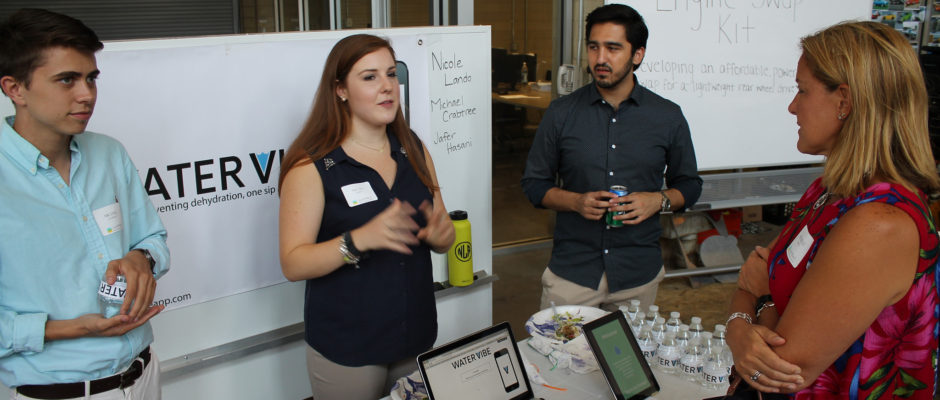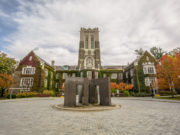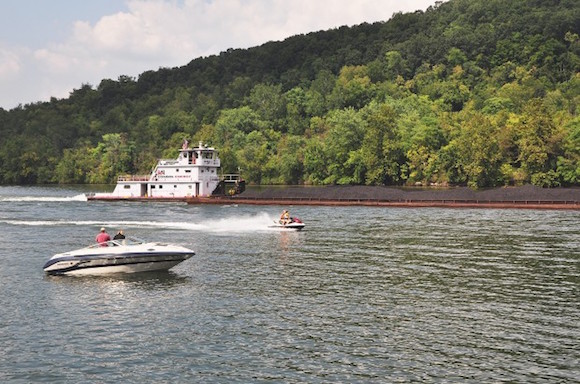Ruins are often cast aside after the demise of great empires. The Colosseum has become a tourist attraction, the Mayan ruins exist largely to be climbed, the Egyptian pyramids serve as fodder for UFO conspiracy theorists. But there are some kingdoms whose legacies continue on.
In 1961, Bethlehem Steel was the second-largest producer of steel in the world. In 2001, they filed for Chapter 11 bankruptcy. Most Lehigh Valley residents know the company’s ruins as the current site of SteelStacks, ArtsQuest and Sands Casino — popular attractions in South Bethlehem located on the erstwhile premises of the former industrial giant. But not many visitors venture all the way up the winding roads past Lehigh University‘s fraternity and sorority houses to reach what lies at the top of South Mountain.
Lehigh’s Mountaintop Campus is home to Ben Franklin TechVentures. The incubator is owned and operated by the Ben Franklin Technology Partners of Northeastern Pennsylvania, part a statewide tech-based economic development organization that invests in and supports both early-stage companies and established manufacturers (BFTP is an investor in Keystone Edge).
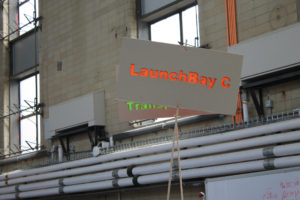 A few hundred yards beyond their offices stand three former Bethlehem Steel research facilities that resemble large loading bays: Buildings A, B and C are home to Lehigh University’s Mountaintop Initiative. These structures were once filled with industrial equipment used for testing steel properties. Now they’re filled with whiteboards.
A few hundred yards beyond their offices stand three former Bethlehem Steel research facilities that resemble large loading bays: Buildings A, B and C are home to Lehigh University’s Mountaintop Initiative. These structures were once filled with industrial equipment used for testing steel properties. Now they’re filled with whiteboards.
Within the Mountaintop Initiative lives LaunchBayC, a ten-week summer accelerator open to all Lehigh students regardless of major, year or academic area of study. (Summer 2017 applications opened in November.)
According to Program Manager Chris Kauzmann, he and his compatriots are “true believers that innovation occurs at the cross section of disciplines.”
“All Mountaintop projects are student-driven and inquiry based, but LaunchBayC has students working on projects that have an entrepreneurial next step,” explains Lisa Getzler, executive director of Lehigh’s Baker Institute for Entrepreneurship, Creativity and Innovation. “They’re going to take the steps toward finding the market for that product or service, and developing a plan to launch it into…the real world.”
LaunchBayC provides an opportunity for students to spend ten weeks, full-time, working on nothing but the problem they want to solve. The program doesn’t have grades, assignments or tests, leaving participants free to innovate and explore.
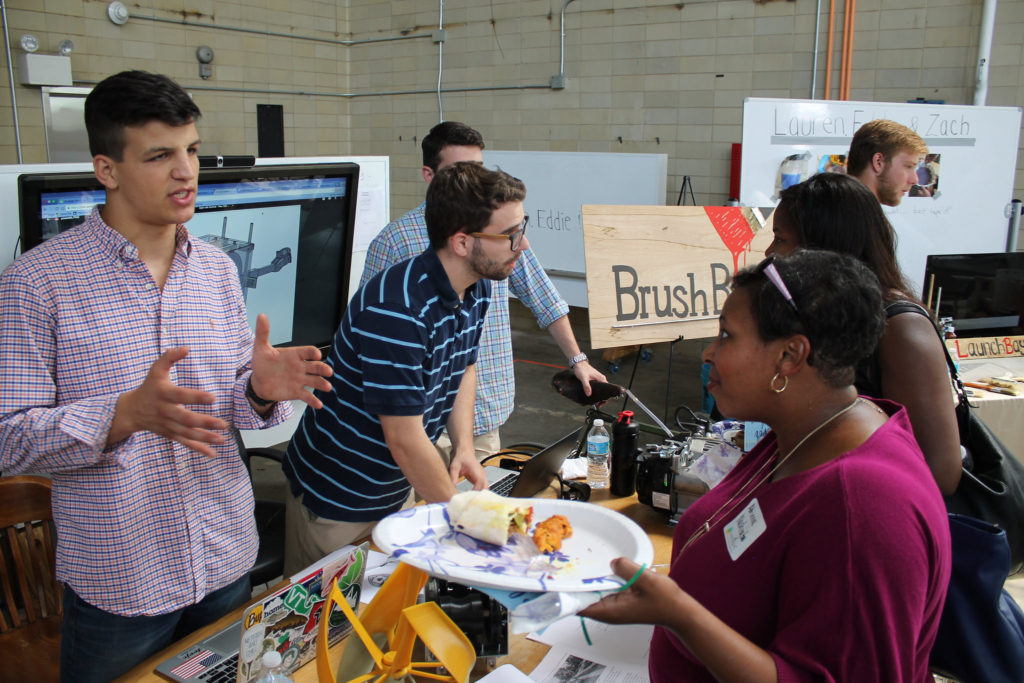
“What we do have is an immersive environment in which we create deep engagement through entrepreneurial thinking and action,” explains Kauzmann. “This means we teach by doing, and students are motivated to learn because they have passion for the end result.”
“There is nothing about it that they haven’t decided is what they want to do,” adds Getzler. “Everything is self-directed, self-driven, and based on their passion for what they’re doing. No grades, no deliverables, other than fulfilling their goals.”
LaunchBayC features three tracks — “Entrepreneurship,” “Innovation” and “Creativity” — delineated by academic year, entrepreneurial experience and development stage. Program coordinators “look for passion and the ability to be self-motivated” in an application, says Kauzmann.
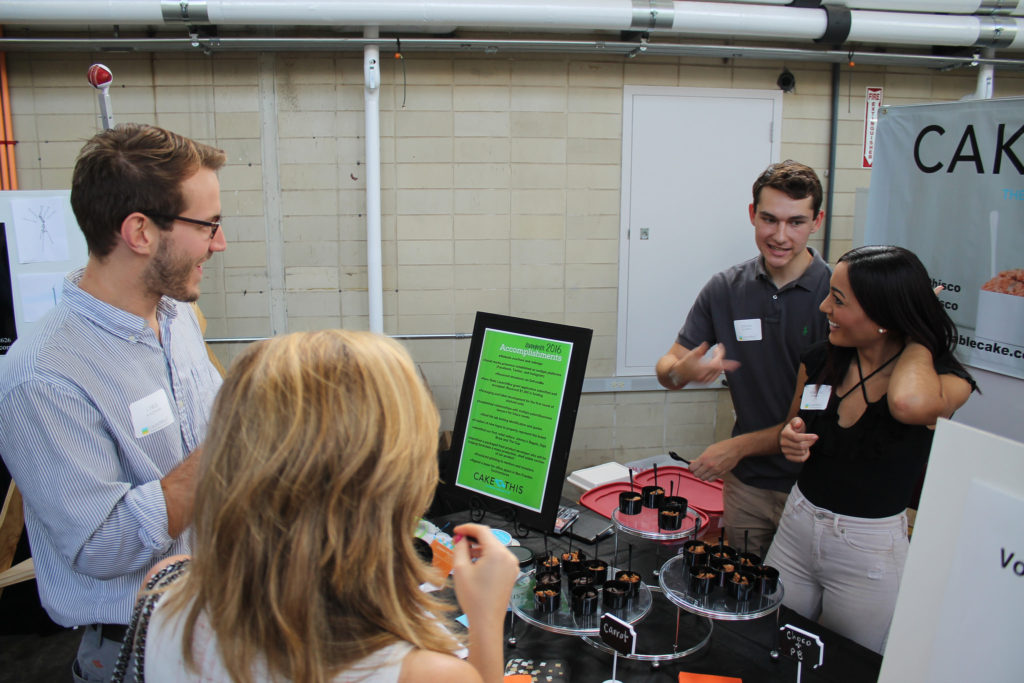
He was able to turn his side project into a full-time endeavor and launch a startup, GreekPillar.
That passion is an innate part of LaunchBayC. There may no longer be steel equipment atop South Mountain, but Bethlehem Steel’s buildings still brim with innovation.
THOMAS VERDI is a freelance writer and filmmaker from Philadelphia. He creates content for travel, real estate and startup companies while also majoring in English at Lehigh University.
